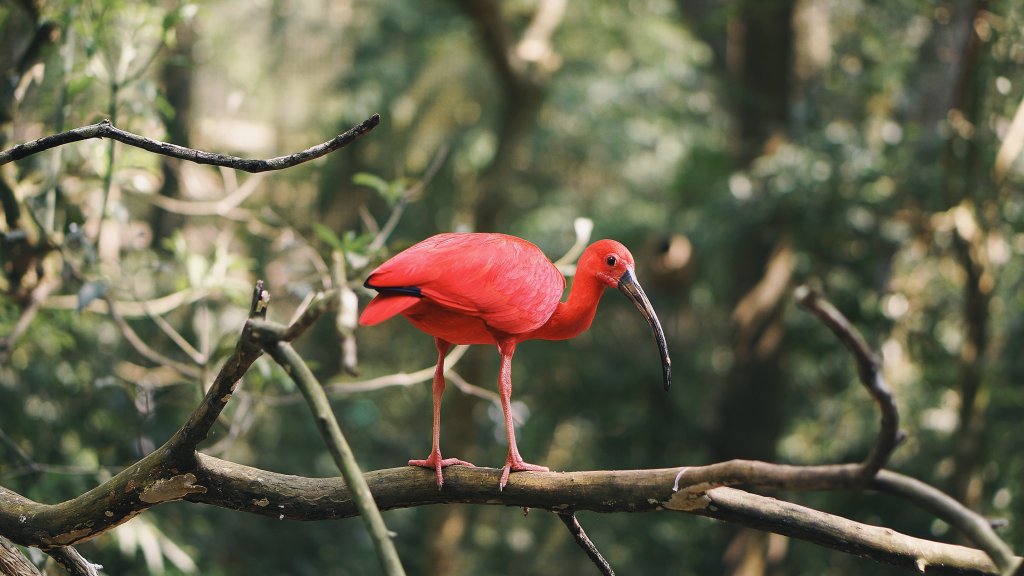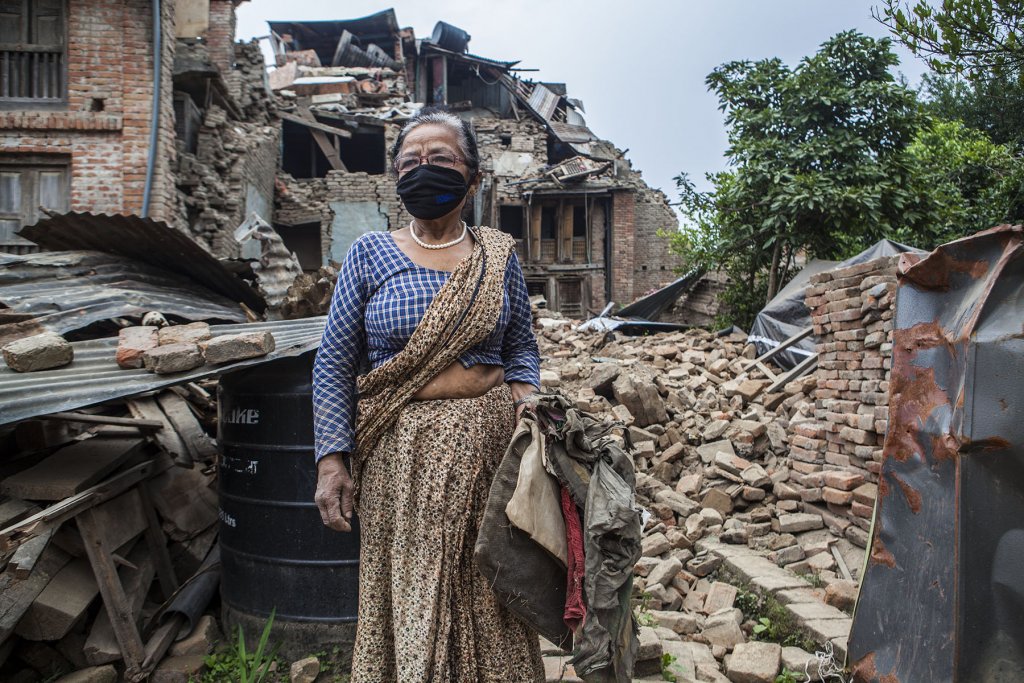3. International Research Collaboration

The ICSU President co-chaired the Governing Council of Future Earth in 2017 and oversaw a number of key developments in the governance arrangements of the initiative.
In June, Amy Luers was appointed Executive Director, and took up her role in September. Luers has over 20 years of experience working on sustainability at the intersection of science, technology and policy. She joined Future Earth from the Skoll Global Threats Fund, where she had directed the climate and water programmes.
In December, Future Earth announced plans to establish an Advisory Committee, chaired by Leena Srivastava and Johan Rockström. This committee replaces the Science and Engagement Committees that were active from 2014-2017 and will provide guidance around Future Earth research and engagement activities as the initiative enters the next phase in its evolution. Its membership will be drawn in part from members of the original Science and Engagement Committees and from additional selections based on nominations from the Governing Council.
ICSU has supported Future Earth through strategic interaction and engagement with the Knowledge-Action Networks (KANs) that the programme is forming.
For example, at the first-ever UN Ocean Conference in New York City, Future Earth launched the Ocean KAN, which issued a call for solution-driven research on the health of the world’s seas.
Future Earth, on behalf of the Scientific and Technological Community Major Group and the International Council for Science (ICSU), delivered a statement at the United Nations General Assembly, indicating how the research community can help the world to meet targets for a sustainable ocean. The statement emphasized that saving the ocean means understanding the “web of complex interactions” among a range of sustainability goals. In August, Future Earth brought together Global Research Projects, KANs and stakeholders at the International Conference on Sustainability Science (ICSS).
Participants in a workshop in Japan scoped the first steps for a new Knowledge-Action Network focusing on reducing risks from the impacts of climate change. This Risks KAN seeks to bring together diverse expertise and professional and local knowledge to reduce disaster risks on climate-related hazards – such as from floods, storms and dangerous heat waves. The network will focus particularly on the severe risks from multiple hazards, compound events and cascading impacts and on
anticipating the disaster risks that emerge as environmental and climate change accelerate.
On 2-4 December 2017, the Institute of Urban Environment of the Chinese Academy of Sciences and ICSU through its Urban Health and Wellbeing Programme, organized the “Future Earth Health Knowledge-Action Network Workshop” in the city of Xiamen, China. Around 30 health experts, including those from ICSU’s LIRA programme, city representatives and key actors of the urban health agenda, discussed the knowledge and actions needed for making cities healthier and more sustainable.3. International Research Collaboration

The year 2017 saw a large a number of extreme weather events and disasters that served to confirm the trend of mounting disaster and climate risks. In this context, IRDR is intensifying its efforts in fostering integrated research, bridging science and policy, and building capacity to understand and mitigate disaster risk.
IRDR partnered with CODATA and Tonkin+Taylor to release a white paper on disaster loss data critical for accurate risk assessment and evidence-based disaster risk management policies. The white paper describes a standard framework and protocols for loss data collection systems. The IRDR data working group is also working towards strengthening data availability and the analysis of data to feed into the monitoring of the Sendai Framework targets. IRDR has played an important role in facilitating international collaboration in data management and data sharing. One example includes the timely provision of satellite data to help with damage and loss estimation in the wake of the 7.8-magnitude earthquake in Kaikoura, New Zealand in November 2016. IRDR and CODATA received a letter of thanks from the New Zealand government for their contribution.
ICSU worked with IRDR to publish a set of five policy briefs for the UNISDR Global Platform (22-26 May, Cancún), a biennial intergovernmental meeting where countries discuss the implementation of the Sendai Framework for Disaster Risk Reduction. The briefs covered the following topics: Science and technology capacities for implementing the Sendai Framework, disaster loss data, the understanding of the root causes of disasters, urban issues and DRR, and the coherence between Sendai, the Paris Agreement and the SDGs. ICSU and IRDR contributed to several sessions, notably on the role of science and technology in meeting the 2020 Sendai target to increase the number of countries with national and local disaster risk reduction strategies.
With the appointment of Qunli Han as Executive Director in September 2017, IRDR is looking to mobilize its network (and in particular its growing number of International Centres of Excellence) to strengthen integrated science on disaster risk and support a stronger science policy interface at national, regional and global levels. The ICSU President Gordon McBean and IRDR Chair Shuaib Lwasa both wrote on the need for integrated and transdisciplinary science to support evidence-based risk reduction strategies in Elsevier’s 2017 Global Outlook on Disaster Science.
In response to an expression of interest from the Future Earth community to develop a new activity on disaster risk, ICSU brought together Future Earth, IRDR and the World Climate Research Programme (WCRP) to explore the feasibility of developing a KAN focusing on the intersection of hazards and disasters, weather and climate extremes, sustainability and Earth system sciences as a jointly-led initiative. An initial scoping meeting took place in Tokyo in November and the three programmes hope to launch the KAN in 2018.3. International Research Collaboration

In 2017 the programme on Urban Health and Wellbeing focused its activities on networking, capacity building, outreach, co-organizing science conferences and aiming at demonstrating how a systems approach can be applied and implemented.
Together with Lausanne University a MOOC (Massive Open Online Course) proposal ‘A Systems Approach to Urban Health and Wellbeing’ was developed. This is designed to introduce participants to a transdisciplinary systems approach for understanding, modelling and solving the interconnected problems and opportunities of urban health and wellbeing in the context of planetary heath. The course will be delivered as a self-paced online, open course hosted on UN Environment’s SDG Campus platform. The intended audience includes urban planners, health development professionals and government officials. The course will focus on methods for tackling complexities – of human ecology, health and behaviour – and provide frameworks that synthesize the ecosystems approach with approaches to human well-being and urban health.
A systems approach to urban health in action has been demonstrated and applied through collaboration with Resilience Brokers and the Beirut-Arab University (BAU), which culminated in two workshops aimed at defining priorities for urban health in the city of Beirut and applying a systems tool to identify the interconnectedness of ‘urban green and walkability’ in Beirut and entry points for action.
The International Conference for Urban Health 2017 in Coimbra, Portugal was co-organized by the UHWB programme, with about twenty contributions from members, partners and sponsors, either in the form of papers, panel discussions, poster presentations or keynote speeches.
The UHWB programme also increased efforts to link its work with that of the Health, Urban and Risk Knowledge-Action Networks (KANs) of the Future Earth programme. The Urban Health KAN meeting organized in Xiamen provided a regional base to engage with the priority themes identified by the Future Earth Health KAN, particularly in the urban context. The San Salvadorian Urban Health Model was presented by Manuel Limonta, Director of the ICSU Regional Office for Latin America and the Caribbean, as a successful example for implementing a systems approach.3. International Research Collaboration
Following a recommendation from ICSU’s 2014 External Review, the Council relaunched its grants programme in 2016 to foster collaborative science among scientific Unions and to encourage high-level international initiatives led by Unions.
The new grants programme is intended to foster membership engagement by addressing long-standing priorities for ICSU members in developing science education, outreach and public engagement activities, and to mobilize resources for international scientific collaboration. The Grants Programme is competitive and peer-reviewed. Proposals must be led jointly by at least two ICSU Scientific Unions, and are required to focus on innovative, international and multidisciplinary work that supports ICSU’s strategic priorities. Three grants of up to 300,000 € each (100,000 per annum for up to three years) were made available for the 2016-2019 period.
Applications representing collaboration across a total of 58 institutions were received and reviewed by ICSU’s Committee on Scientific Planning and Review (CSPR). A final decision to award was made in early 2017 and the following three consortia were selected:
Mathematical and natural sciences have long and honourable traditions of participation by highly creative women contributors. However, the percentages of women scientists remain shockingly low and there is a significant gender gap at all levels between women and men. Barriers to achievement by women persist, especially in developing countries. The project will produce sound data to support the choices of interventions that ICSU and member unions can feasibly undertake. It will provide evidence for informed decisions, including trends – since the situation for women continues to change around the world, with some negative developments – and will provide easy access to materials proven to be useful in encouraging girls and young women to study and work in these fields. Regional information about careers, jobs and salaries will be provided. A joint global survey is planned to reach 45,000 respondents in more than 130 countries using at least 10 languages, while the joint study on publication patterns will analyse comprehensive metadata sources corresponding to publications of more than 500,000 scientists since 1970. Contrasts and common ground across regions and cultures, less developed and highly developed countries, men and women, mathematical and natural sciences, will be identified.
Understanding the dynamics of Earth’s ecosystem and identifying measures to sustain it for the future requires immediate action involving multidisciplinary approaches. Research efforts to identify key factors that affect the biodiversity and ecosystem functions and services need to be scaled up substantially and rapidly, requiring a whole new generation of multidisciplinary scientists/policy makers/administrators, whose education should begin now. Educating forthcoming generations about the causes and effects of global climate change is also imperative
as implementing solutions depends on an informed public. In this context, we need to develop education and science communication modules such that every future citizen can be better equipped to identify appropriate solutions for sustainable and equitable development.
This project aims to identify, through a consultative mechanism, the most relevant curricula and efficient pedagogical tools, and outreach and citizen science programmes to study the impact of climate change on biodiversity and ecosystem
functions and services and human health and diseases; and ways to address these problems in the coming years.
The uniqueness of this proposal lies in its focus on those education and citizen-science modules that are locally rooted yet globally relevant. The sponsors of the project envisage developing on-line learning materials such as lectures (videos
embedded with animations), interactive exhibitions/museums, mobile apps, etc.
This project will enhance advanced light source (AdLS) and crystallographic sciences in three global regions (Africa, the Middle East, Mexico and the Caribbean) by developing regional plans to grow and enhance understanding of light source techniques and crystallography in these regions.
The project aims to accomplish the following:
By enhancing AdLS and crystallographic sciences, the regions’ people will benefit from research that will tackle such devastating viruses as Zika, Ebola and HIV. Furthermore, the regions contain important archeological and paleontological treasures to be explored by the beams from AdLSs.